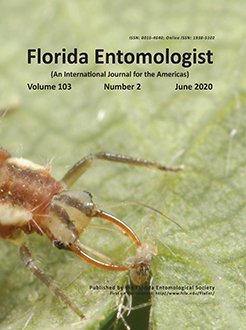The persistence and high dispersal of weeds during the off-season can favor the survival of pests and diseases that threaten cultivated crops in Brazil. The fall armyworm, Spodoptera frugiperda (J.E. Smith) (Lepidoptera: Noctuidae), is one of the principal polyphagous pests that takes advantage of the no-tillage system. Despite its pest status, little is known about S. frugiperda survival and development in alternative hosts, including those resistant to glyphosate. The purpose of this study was to investigate, in laboratory and greenhouse conditions, the adaptive capacity of S. frugiperda in volunteer maize and 6 weeds commonly found in Brazilian agroecosystems, including species with biotypes known for glyphosate resistance, such as fleabane, sourgrass, and goosegrass. We found that S. frugiperda survival and biomass were significantly higher in goosegrass, maize, and johnsongrass in both laboratory and greenhouse conditions. In contrast, fleabane, benghal dayflower, sourgrass, and smooth pigweed caused a decrease in S. frugiperda fitness. Along with S. frugiperda adaptive capacity, our results suggest that its persistence in the field can be directly related to weed control inefficiency during the off-season, increasing the demand for integrated pest and weed management.
How to translate text using browser tools
10 July 2020
Survival and Development of Fall Armyworm (Lepidoptera: Noctuidae) in Weeds During the Off-Season
Tamara Moraes,
Alexandre Ferreira da Silva,
Natália Alves Leite,
Décio Karam,
Simone Martins Mendes

Florida Entomologist
Vol. 103 • No. 2
June 2020
Vol. 103 • No. 2
June 2020
adaptive capacity
BIOLOGY
fitness
glyphosate-resistance
Spodoptera




